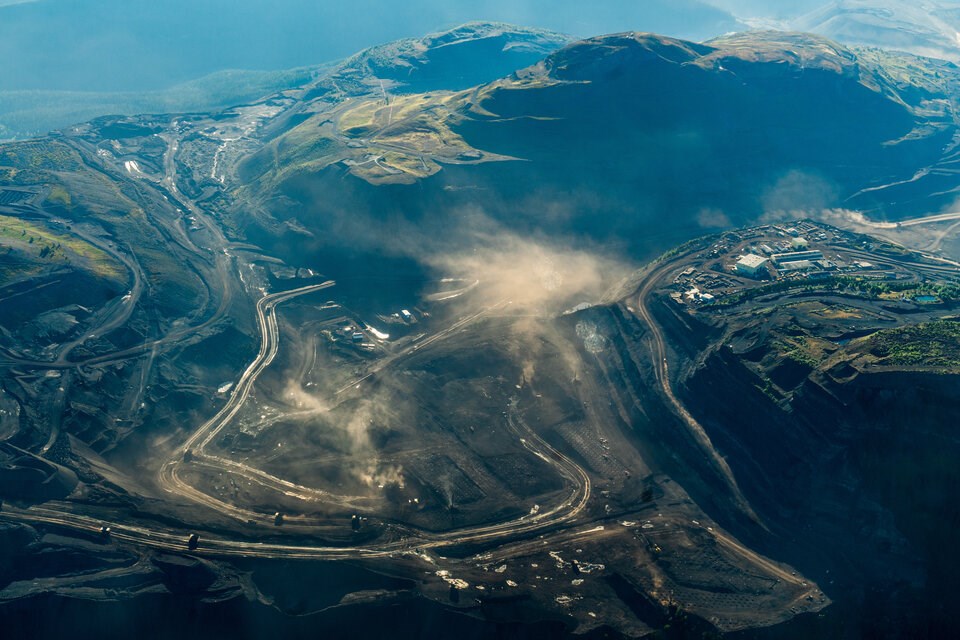Calvin Sandborn KC is a senior environmental lawyer, and Fraser Thomson is a lawyer with Ecojustice.
“Clean up your own mess.”
— Robert Fulghum, Everything I Need to Know I Learned in Kindergarten
Ottawa must soon decide whether to approve Glencore’s bid to buy Teck’s Elk Valley coal mines. If the government is not careful, it could saddle Canadian taxpayers with a multibillion-dollar liability — and an unsolved pollution catastrophe.
The Teck mine sites contain billions of cubic metres of waste rock rich in toxic selenium that is leaching into the watershed. This has created one of the world’s largest selenium contamination events, and one of North America’s most serious pollution problems.
Selenium has found its way into drinking water supplies and poses an existential threat to the region’s prized Westslope Cutthroat trout. The selenium is also contaminating fish more than 100 kilometres downstream in Montana and Idaho.
In 2021 the largest Fisheries Act fine in history ($60 million) was levied against Teck for this coal pollution. This year, the pollution sparked the extraordinary Trudeau-Biden decision to invoke an International Joint Commission investigation of the intractable problem.
As Teck proposes to sell these mines to Glencore, it may not only be fish and the environment at risk — but taxpayers as well. A new report for Wildsight by Burgess Environmental Ltd. cites the fact that Teck has posted less than $2 billion security with government for long-term cleanup of the Elk Valley mines.
However, using new government guidelines for calculating reclamation costs, the Burgess engineer estimates the actual cost of remediating the selenium contamination exceeds $6 billion.
Thus, if future owners of the Elk Valley mines go bankrupt, taxpayers could potentially get stuck with billions in unsecured costs. And the costs of remediating the vast waste rock dumps and filtering the contaminated waters could continue for many decades. Some Roman Empire and medieval mines are still discharging toxic drainage centuries later.
Indeed, the B.C. Auditor General warned in 2016 about the high perpetual costs of maintaining water treatment facilities in the Elk Valley — and admonished the B.C. government to safeguard taxpayers by ensuring that:
• reclamation cost estimates are accurate, and
• government holds enough security to cover potential costs.
Obtaining adequate security is especially important in mining. The industry goes through periodic booms and busts, and insolvency is not uncommon. Unfortunately, when mines fail, inadequate security can result in cleanup bills going to taxpayers.
For example, taxpayers are picking up the tab for about $2 billion in remediation costs at Yukon’s Faro Mine and a bill of more than $4 billion to remediate the Giant Mine in the Northwest Territories.
B.C. taxpayers paid $46 million for clean up of the Britannia Mine — and will perpetually pay millions more every year to operate the water purification system. Elk Valley mines must not be added to this list of taxpayer sorrows.
It is particularly important that government hold adequate security from coal companies — such as the standalone “CoalCo” that Glencore intends to spin off to take ownership of its coal/carbon steel operations.
The problem is that coal is a “sunset industry.” Experts agree that the climate emergency simply cannot be addressed without sharp cuts to coal use, and the industry faces inevitable decline.
As the world stops buying coal, how will such companies pay for massive future remediation and perpetual water treatment operations? If they can’t pay and posted security is inadequate, those costs could fall to the public.
In the case of the Teck coal mines, it is essential to avoid another Giant Mine taxpayer debacle. No sale should be approved without a guarantee that the B.C. government holds enough security to pay for all necessary mine reclamation.
The Investment Canada Act requires Innovation, Science and Industry Minister François-Philippe Champagne to be satisfied that the proposed sale of these mines to a Swiss multinational is “likely to be of net benefit to Canada.”
Clearly, the minister must analyze the new estimates of Elk Valley reclamation costs, and decide whether those costs truly amount to triple the posted security.
If so, he should withhold sale approval until security is increased to protect Canadian economic interests.
In any event, Teck can likely afford additional security that may be needed — it claimed more than $9 billion in gross profit from coal for the years 2022 and 2023.
It really is as simple as kindergarten rules. A company that makes a mess should ensure cleanup.
As Champagne considers the sale of Teck mines, we hope he recalls that elementary principle.



